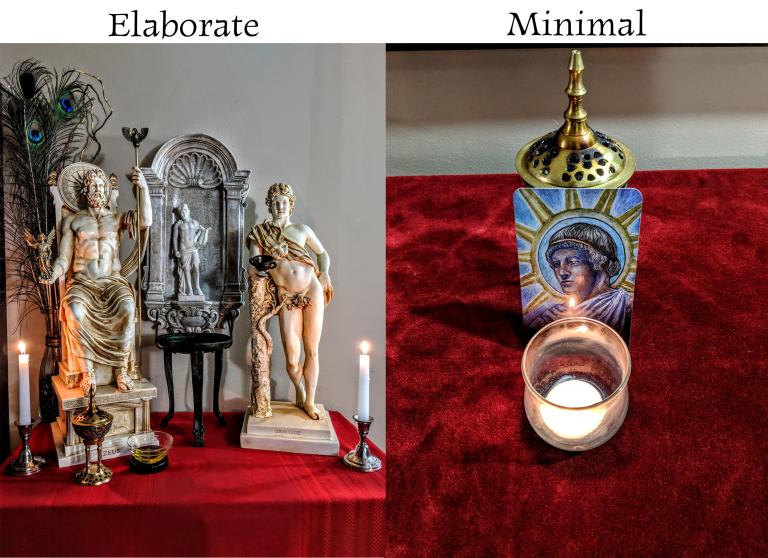In an ideal world worshiping the Gods in the open should be effortless. Unfortunately for some, circumstances limit their ability to worship in the open. This post will deal with discreet devotion and how to develop some level of practice and immersion into Hellenism.

First, the level of theory. Because Hellenism is an ethos and not exclusively a religion, this allows you to approach Hellenism from a variety of publicly acceptable approaches that shouldn’t arouse suspicion. Dozens of academic professions are devoted around Hellenism. Given this, I highly recommend that you read the primary sources from antiquity and academic/educational books. Engaging in Hellenism in this manner will create the illusion that there is nothing deeper going on beyond educational passions.
Additionally, you will be exposing yourself to the primary texts, helping to orient yourself to the Hellenic worldview (ethos). In my view, it is problematic to worship Gods devoid of cultural context. The two cannot be separated if a Hellenic religious system is what you are indeed looking for. You can find primary sources for free online here which is the same database scholars use. Don’t forget to visit your public library and see what they have to offer. Word to the wise, at this early stage, don’t go toward pagan books that teach how to practice the religion as those books will be a red flag; keep the books at the educational level for now. Walter Burkert’s Greek Religion (Harvard University) will cover you and maintain the illusion.

Second, the level of practice. Theory needs to be put into practice eventually. This cannot be avoided and, given the limited situation you may be in, what you physically can perform in terms of devotion will vary. You should not assume that you need to be elaborate and explicit; meaning, your devotional behaviors do not need to overtly look like devotion for it to be ‘real.’ My home shrine is an example of elaborate and explicit; avoid this! While it is nice to be able to express devotion in this manner, it is not necessary. Extravagance in devotion is understandable but understand that devotion is not validated by material items. Aesthetics come second to a stable routine/system to follow and of course love for the Gods. Work with what you have and can get your hands on, adapt to the limitations of your environment as you see fit.

In previous blog entries, I have presented a calendar and household worship setup. Using these as the template you can follow along with ease if you keep the visible expression simple. The bare minimum in terms of physical items you may want to incorporate would be a plain candle and incense burner. I would leave out a libation bowl since that is more suspicious-looking than a candle or incense burner. Lighting a candle and/or burning incense as an offering are more than sufficient as ritual actions to perform if you can perform them. Following the household worship setup with the calendar will provide a system to follow.
If you can add representations of the Gods that would be the next step, either statues or printed images. If you do not feel comfortable with either of those options, symbols such as the Gods’ animal(s) could be used in place, either little figurines or printed images. Check out Theoi.com as they list the Gods’ associated animals and symbols.
Final advice, go slow and don’t get fixated on “correctness” – do what you are able to do and grow naturally with it.

















